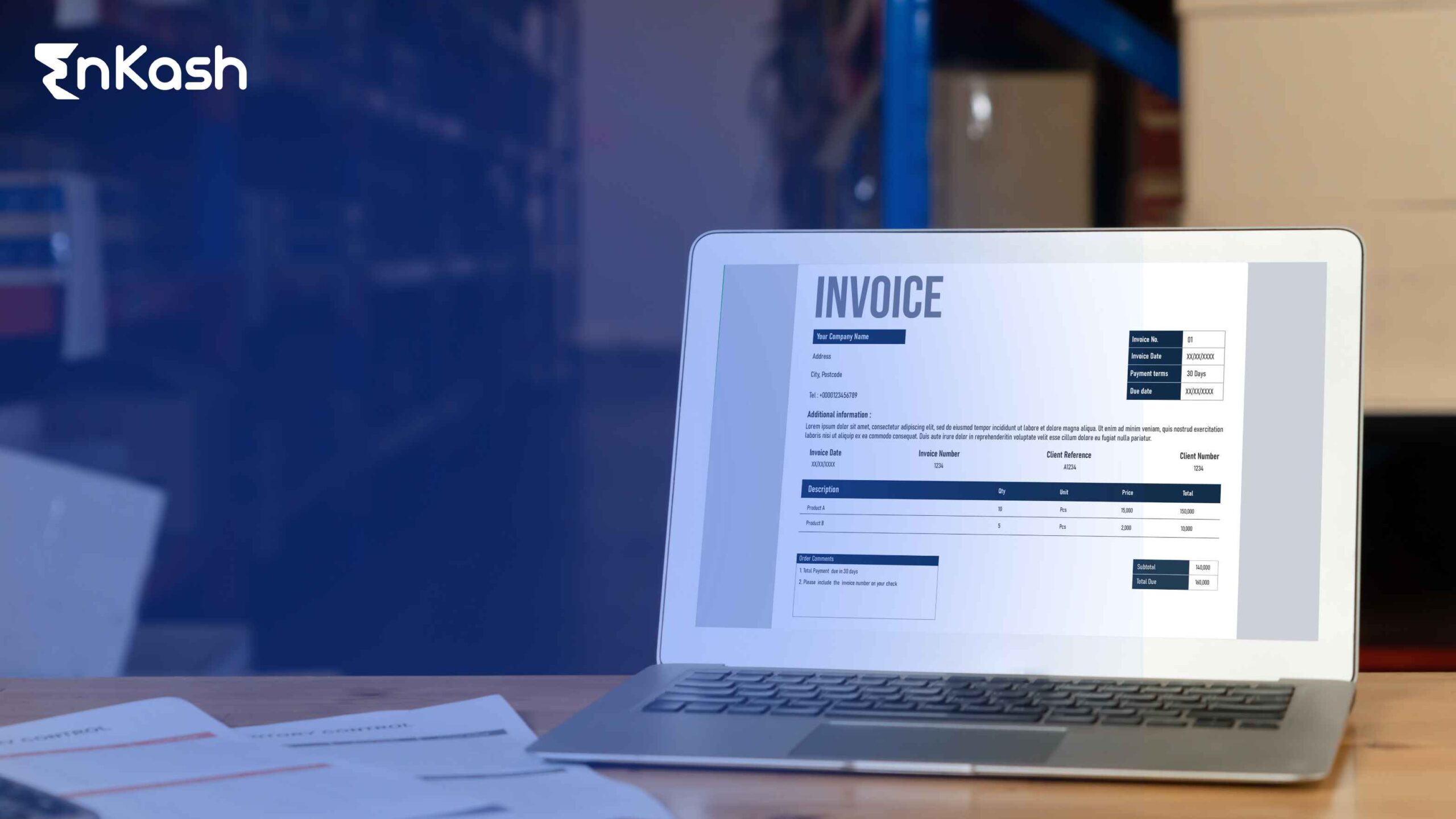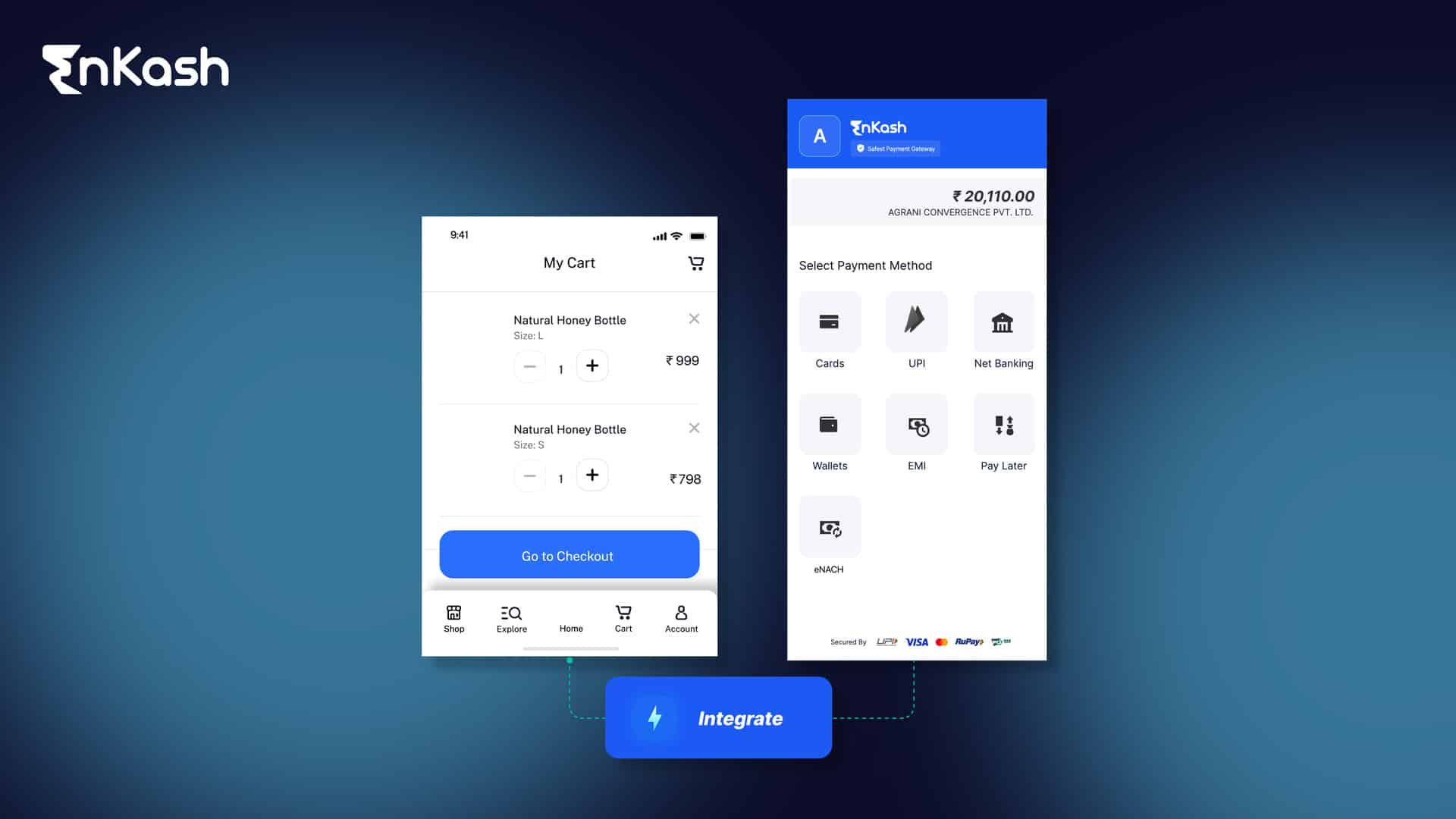When it comes to international business, the documentation that goes with shipping matters for a seamless transaction, customs clearance and financial and legal records. The commercial invoice is one of the crucial documents in this context. It is a written record of sale between the seller and buyer. A proper commercial invoice gives transparency, clarity, and security for both parties, as well as ensures that it complies with international trade regulations. In this article, we will look at the commercial invoice definition, and understand its importance and key components. We will also look at a commercial invoice example and learn how it differs from a custom invoice.
What is a Commercial Invoice?
A commercial invoice is a legal document issued in international commerce to prove the sale of goods or services between a seller (exporter) and a buyer (importer). It contains all the transaction details like description of goods, quantity, cost, payment terms, shipping and so on. It is used by customs officials to determine the duties and taxes to be imposed on the imports.
While proforma invoices are usually presented to the buyer in advance for an estimate prior to closing a sale, the commercial invoice is the final document indicating that the sale is closed. It is issued when the shipment is delivered or available for delivery and includes all transactional information.
What Details Are Included in Commercial Invoice?
For a commercial invoice to be in compliance with national and international regulations, it must consist of several necessary elements. Here is a breakdown of the elements that make up a commercial invoice.
1. Information About Seller and Buyer
- Seller: Seller’s name, address, contact details and tax identification number (TIN) must be provided.
- Buyer: Likewise, the buyer’s name, address, phone number, and tax ID, if any, should also be entered.
2. Details of Invoice
- Invoice Number: Every invoice should have a unique number so that it can be easily recognized and traced.
- Date of Invoice: The date the commercial invoice is generated.
- Purchase Order (PO) Number: Identifies the purchase order related to the transaction, if any.
3. Goods Description
- Details about Products: It contains detailed information about the products being sold, such as the product description, quantity and cost.
- HS Code: The product’s Harmonized System (HS) code, helps customs officers identify the product and calculate the duties and taxes.
4. Payment Information
- Terms of Payment: Here, the agreed payment terms are mentioned. For example, the payment method (bank transfer or credit), due date and payment terms (payment on delivery or advance payment)
5. Shipment Details
- Shipping Details: The commercial invoice needs to include the mode of transport (air, sea, land), shipping route and any supporting shipping documentation (Bill of Lading or airway bill).
- Freight Charges: Charges of transport and handling should be mentioned.
- Destination Information: The final destination of the goods, with address and port of entry details.
6. Cost and Currency
- Single Item and Total Price: The unit price of the item and the total cost of the shipment as a whole, including taxes and other expenses.
- Currency: Mention the currency in which the transaction is being made.
7. Regulatory Requirements
- Country of Origin: The location where the product was made or produced.
- Incoterms: International commercial terms (Incoterms) establish the roles of the seller and buyer, such as who’s responsible for shipping, insurance, and customs.
- Tax and Duty: Tax and duties should be mentioned, and the invoice should comply with the taxation policies of the exporter and importer countries.
8. Authorization
- Authorized Signature: The invoice should be signed by the exporter or seller’s representative to authorize the document.
- Certificates: Based on the products, other certificates such as certificates of origin, health certificates, or compliance certificates may be required.
Read more: Invoice management solution
Commercial Invoice Sample
Here’s a commercial invoice sample for an international sale of products:
COMMERCIAL INVOICE SAMPLE
Seller:
Business Name: Artisanal Furniture Co.
Address: 789 Art Street, Jodhpur, India
Contact: +91 98765 43210
Email: [email protected]
Tax ID: IN1234567890
Buyer:
Business Name: British House Interiors
Address: 101 London Street, London, UK
Contact: +44 20 1234 5678
Email: [email protected]
Tax ID: GB9876543210
Invoice Details:
Invoice Number: AF-2024-0824
Invoice Date: 24th August 2024
Purchase Order Number: PO-0048
Payment Terms: 50% Advance, 50% on Delivery
Currency: GBP
Goods Description:
Item Description |
Quantity |
Unit Price (GBP) |
Total Price (GBP) |
Handcrafted Wooden Chairs |
70 |
120 |
8,400 |
Dining Tables |
20 |
500 |
10,000 |
Bookshelves |
10 |
700 |
7,000 |
Subtotal: £25,400
Shipping Cost: £1,400
Total Amount Due: £26,800
Shipping Information:
Shipping Method: Air Freight
Shipping Cost: £1,400
Country of Origin: India
Destination Country: United Kingdom
Port of Loading: Mumbai Port, India
Port of Discharge: London Heathrow, UK
Delivery Terms: CIF (Cost, Insurance, Freight)
Payment Information:
Bank Details:
Bank Name: XYZ Bank
Account Number: 1234567890
SWIFT Code: XYZIN1234
Signature of Seller:
Rohit Verma
MD, Artisanal Furniture Co.
Date: 24th August 2024
Importance of a Commercial Invoice
The commercial invoice is a vital document for both the seller and the buyer and offers many key benefits and safeguards in foreign trade. Below are the main reasons that best explain the importance of a commercial invoice.
- Required for Clearing Customs
The importing country’s customs official will need the commercial invoice to check the contents of the shipment, calculate the duty and taxes and make sure that the goods comply with local laws and regulations.
The goods can be delayed, fined or even seized by customs without a properly filled commercial invoice. The HS number in the invoice allows the customs officials to sort the items to calculate the tariffs and taxes.
-
Transaction Proof
A commercial invoice is a legally enforceable document that indicates that the sale has occurred between the vendor and the customer. It includes all the agreed information like quantity, price, and conditions of the sale and can be used as evidence if disputes or lawsuits arise.
In case of any dispute over the sale, the commercial invoice can be used in court or arbitration to establish the sale was a valid transaction and that the agreement was adhered to.
-
Financial Accounting
Both parties utilize it to trace the transaction and make sure that the required payments are made in time. Invoices help the seller’s accounting department in monitoring sales and revenue.
The commercial invoice is a record for the importer’s tax filing so that all the duties and taxes are paid. It also helps in calculating the cost of goods sold (COGS), that’s necessary for the creation of financial statements.
-
Compliance
The commercial invoice ensures that both sides adhere to foreign trade law and regulations. It’s a legal record that confirms the importer’s customs declaration, checks for the integrity of imported goods and prevents any fine or penalty for violations.
For the seller, a commercial invoice that is compliant with the rules of the exporting and importing countries is important for avoiding litigation. This is especially true in countries where import/export rules are strictly enforced, like the US.
-
Protection Against Fraud
The commercial invoice prevents misunderstandings and fraudulent assertions by providing the specifics of the transaction like the description of the product and payment terms.
When either side attempts to change the transaction or lies about the goods, the commercial invoice establishes an authentic record of the transaction and acts as insurance against fraudulent actions.
Read more: Invoice processing software
Commercial Invoice vs Customs Invoice
Here’s a brief comparison between commercial and customs invoice
Commercial Invoice |
Customs Invoice |
Used to document the sale of goods or services between the seller and the buyer. |
Used specifically for customs clearance and duty assessment by the importing country’s authorities. |
Issued by the seller or exporter. |
Issued by the seller or exporter (may be requested by customs authorities). |
The recipient is the buyer or importer. |
Recipients are customs authorities for duty and tax purposes. |
Includes detailed description of goods, prices, terms of sale, and payment. |
Includes similar details but focuses on information required by customs (e.g., country of origin, customs value). |
Used for invoicing the buyer, requesting payment, and providing proof of sale. |
Used to clear goods through customs, ensuring proper duties and taxes are applied. |
Legally binding once the sale is complete. |
Not always legally binding but required for customs processing. |
Includes HS code to classify goods for customs duties. |
Includes HS code in greater detail for customs processing. |
Does not typically include detailed customs duties and taxes. |
Explicitly used to determine the duties and taxes applicable to the shipment. |
Contains shipping details such as terms, delivery date, and mode of transport. |
May not include detailed shipping terms but provides necessary customs-specific shipping information. |
Required for financial and accounting purposes, payment tracking, and proof of sale. |
Required to comply with customs regulations and facilitate the entry of goods into the country. |
May or may not include tax-related details, focused more on the sale. |
Must include accurate tax and duty information for customs. |
Often includes other documents like Bill of Lading, purchase order, and payment terms. |
May require additional specific documentation for customs clearance (e.g., Certificate of Origin, packing lists). |
Read more: Financial Accounting
What is a Commercial Invoice for Customs?
A commercial invoice for customs is a similar type of commercial invoice but customized to the specific needs of customs authorities. The commercial invoice for customs has the description of goods, the amount and other data required for clearing the customs.
Some nations might stipulate forms or formats of the commercial invoice for customs, but the vast majority of customs authorities are satisfied with the seller’s commercial invoice provided it contains all the information required for goods classification and the payment of taxes.
Commercial Invoice Listing Recipient Instead of the Buyer
A commercial invoice will, in some cases, list the receiver and not the buyer. It can happen when the buyer is purchasing for a third-party or the shipment is sent to a different party. This could be in case of global B2B trade where the product is sent to a distributor, customs broker or a retail outlet for the final sale.
When creating a commercial invoice listing recipient instead of the buyer, add the recipient’s full address and contact information should be entered in place of the buyer’s.
When to Raise a Commercial Invoice under Indian Law?
Indian laws, specifically the Goods and Services Tax (GST) Act, require commercial invoices at various points of sale. In the case of goods, the invoice has to be issued before or at the moment of delivery of the products from the supplier’s place to the buyer. This is essential to ensure that the supply is correctly recorded in tax records. For services, the invoice needs to be raised when the service is provided or before.
For GST registered companies, commercial invoice has to include all necessary information like the description of goods, quantity, cost, tax rate, and seller’s and buyer’s GSTIN. And if goods are being supplied interstate, then the invoice must contain the HSN (Harmonized System of Nomenclature) code for proper taxation. Issuing invoices on time can help companies remain compliant and avoid fines and penalties.
Read more: Types of GST
Conclusion
In conclusion, the commercial invoice is a key document in international business that facilitates efficient customs clearance, legal safeguards and financial accounting. It acts as evidence of sale and contains all the details that customs officers need to charge import duties and taxes. For a seller or importer, learning the importance of a commercial invoice and making sure that the invoice is complete and correct will help them conduct seamless international trade and cross-border commerce.
FAQs
1. What is the meaning of a commercial invoice?
A commercial invoice is a legal document in international commerce which records the purchase or sale of goods or services between the vendor and the buyer. It contains important transaction information like the description, quantity, price, shipping address and payment terms, and it’s necessary for clearing customs and accounting.
2. What role does a commercial invoice play in customs?
A commercial invoice is an essential tool for customs clearance as it tells the customs officials all about the goods being transported, such as their value, category (HS code) and country of origin. This enables customs to determine the correct duties, taxes, and tariffs.
3. What is the timeline for the issuance of a commercial invoice?
A commercial invoice must be sent before or when the shipment is ready to be transported from the supplier’s premises to the purchaser, particularly in the case of Indian goods. For services, it should be raised when the service is provided or earlier based on the contract.
4. What details must be present in a commercial invoice?
A commercial invoice should contain information such as the seller’s and buyer’s name and contact information, invoice number, date of issue, terms of payment, product details, quantity, unit price, total price, shipping mode, and HS code for customs purposes.
5. Can commercial invoices be used for taxation purposes?
Yes, commercial invoices can be used for taxation purposes. It serves as the evidence of the transaction for financial statements and it can be used to estimate taxes like GST or VAT. The invoice also supports input tax credits claim where applicable.
6. Does a commercial invoice hold legal standing?
Yes, a commercial invoice is a legally binding contract between the seller and the buyer. It acts as evidence of sale and defines the terms and conditions negotiated between both the parties such as payment terms and timelines for delivery.
7. How does a proforma invoice differ from a commercial invoice?
The proforma invoice is sent before the sale is concluded and gives the buyer an estimate. The invoice is not legally binding. A commercial invoice, on the other hand, is created after the sale, it includes final prices and it acts as a record of the sale to customs and the payment.
8. Can companies issue commercial invoices in electronic format?
Yes, electronic commercial invoices (e-invoices) are accepted and used frequently in international transactions. They speed up the entire procedure, making it easier and faster, particularly for customs clearance, because they can be easily exchanged between seller, buyer and customs officials.
9. How do commercial invoices differ from packing lists?
Though both are used for international business transactions, a commercial invoice has comprehensive financial and transaction details, including the price and payment terms. A packing list, meanwhile, is concerned with the contents of the shipment, like quantity, weight, packaging information.
10. Are commercial invoices required by all countries?
Yes, generally, every international shipment, no matter where the shipment is being sent to, requires a commercial invoice. Different countries can have different invoice formats, but in most cases the seller’s commercial invoice is fine if it contains all of the customs clearance information.













